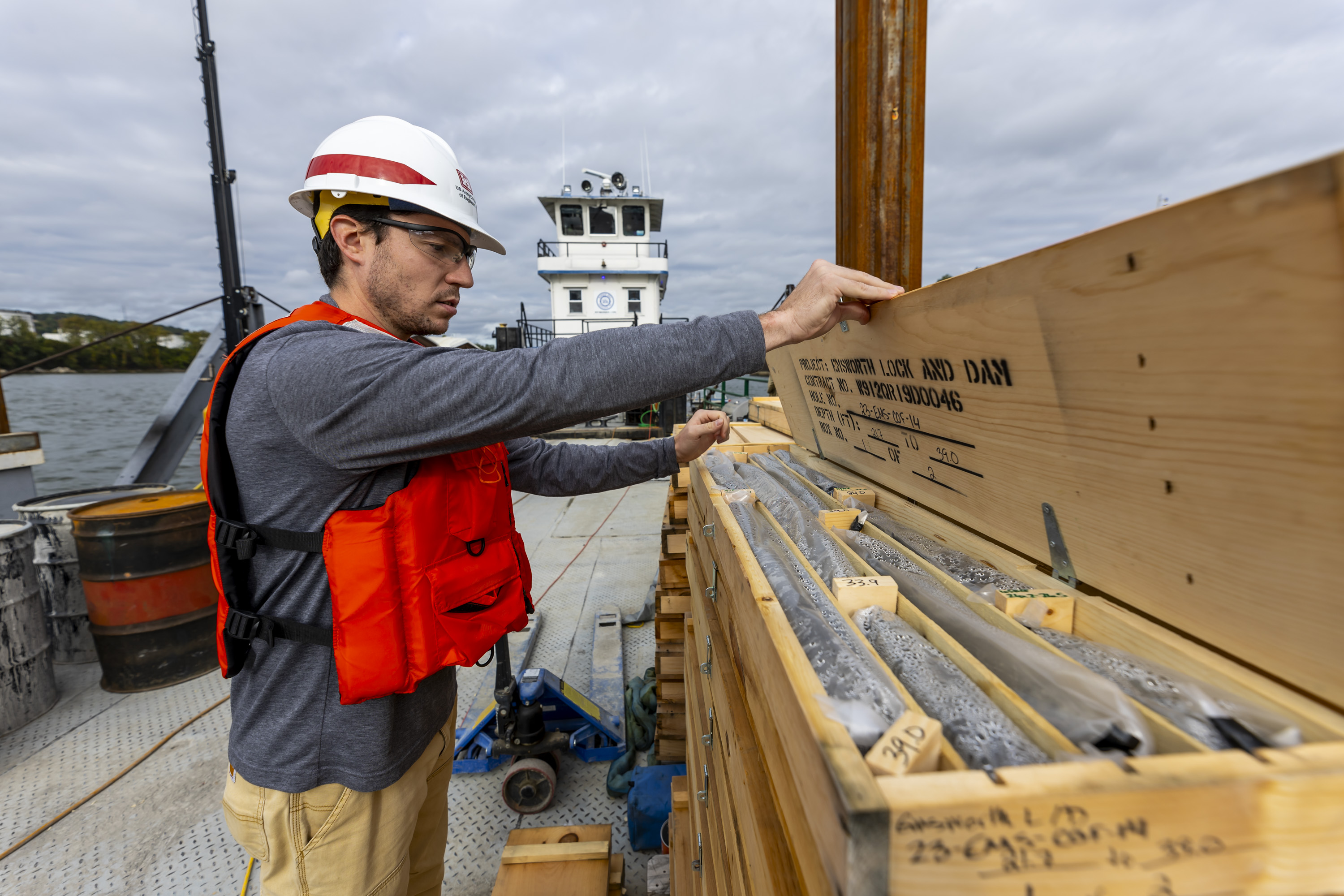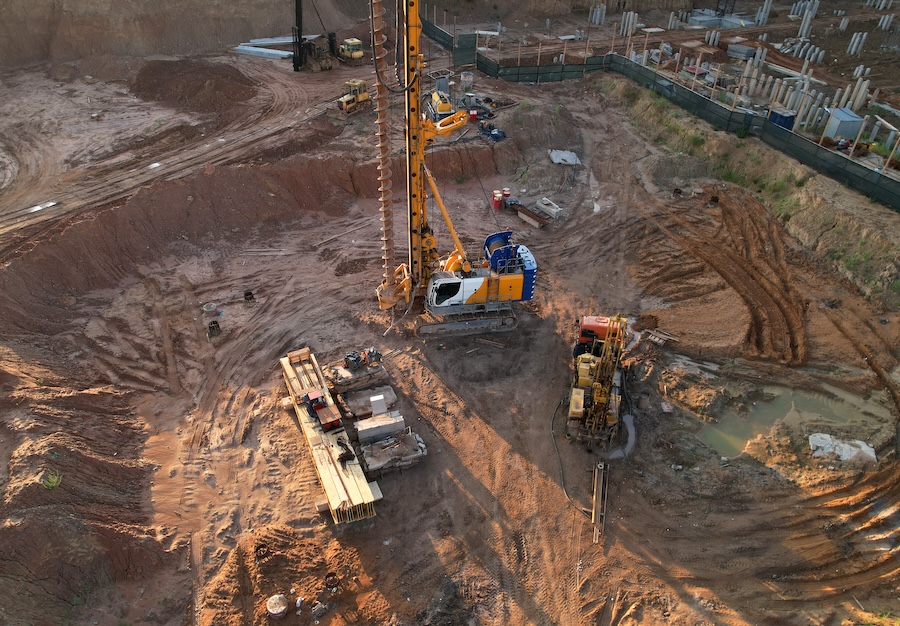Geotechnical Engineering What Is It and How It Ensures Safe and Secure Structures
A Thorough Summary of the Secret Services Offered by Consulting Civil Engineering Professionals in Modern Construction
Consulting civil design specialists are important to the success of contemporary building and construction tasks, providing a multifaceted suite of services that resolve various challenges. geotechnical engineering in south africa. As the intricacy of building and construction projects continues to develop, recognizing the complete range of solutions they supply becomes increasingly crucial for stakeholders.
Site Analysis and Usefulness Studies
When starting any building project, recognizing the site's features is crucial, as it straight influences the usefulness and design of the development. Site analysis and feasibility studies are crucial components of the pre-construction phase, allowing stakeholders to make enlightened decisions. These research studies entail a detailed analysis of the physical, ecological, and regulatory elements of the website.

By incorporating these elements, civil engineering experts can supply an alternative view of the site's feasibility for the desired development. Eventually, comprehensive website assessments and feasibility research studies lay the foundation for effective task implementation, maximizing and decreasing threats source allocation.
Architectural Layout and Evaluation
Following a thorough website evaluation and expediency research, the following critical stage in the construction process is structural style and analysis. This vital solution includes the growth of architectural systems that ensure the safety and security, longevity, and economic feasibility of a job. Consulting civil designers use innovative approaches and software to assess loads, anxieties, and product residential properties, guaranteeing that designs follow appropriate codes and criteria.
Architectural design encompasses numerous aspects, including light beams, columns, structures, and load-bearing walls. By using concepts of technicians and product science, engineers produce frameworks that can hold up against environmental forces such as wind, seismic task, and snow loads. The analysis stage involves meticulous computations to anticipate the behavior of these frameworks under numerous problems, ensuring they can do as intended throughout their lifespan.
Moreover, consulting designers team up carefully with architects and other stakeholders to incorporate structural aspects aesthetically and functionally. The deliverables typically include thorough drawings, specs, and comprehensive records that help with the building and construction procedure. Inevitably, efficient architectural design and evaluation are critical in decreasing risks, enhancing resources, and accomplishing successful project outcomes in modern-day building.
Task Management and Coordination
Reliable job monitoring and sychronisation are crucial components of successful civil engineering solutions, making sure that building and construction projects are provided in a timely manner, within budget plan, and to the called for quality criteria. Consulting civil designers play a crucial role in coordinating numerous project components, from preliminary preparation via to forecast conclusion. This involves not just the technical elements of style and construction however additionally the strategic administration of timelines, stakeholders, and sources.

In addition, civil design experts highlight the value of documents and reporting throughout the project lifecycle - geotechnical engineering in south africa. By maintaining accurate documents, they ensure transparency and accountability, which promotes trust fund among all parties involved. Eventually, competent task management and sychronisation bring about boosted task end results, aligning with customer expectations and contributing to the total success of the construction undertaking
Regulatory Compliance and Permitting
Successful project management lays the groundwork for resolving governing compliance and allowing requirements in civil engineering jobs. Making certain adherence to neighborhood, state, and government guidelines is important for the effective execution and completion of any kind of building and construction endeavor. Consulting civil design experts play a crucial function in navigating the complicated landscape of regulatory structures and allowing processes.
These experts are fluent in zoning regulations, developing codes, ecological regulations, and safety and security requirements that govern construction practices. They conduct thorough analyses to determine all appropriate policies, making certain that tasks abide by essential legal requirements. By collaborating with governmental companies and stakeholders, seeking advice from engineers assist in the permitting procedure, streamlining authorizations that site and lessening hold-ups.
Moreover, they prepare and submit the requisite documents, such as website plans, environmental influence assessments, and design records. This proactive method not only promotes conformity yet likewise improves job feasibility and sustainability. Inevitably, reliable regulative conformity and allowing are essential elements of an effective civil engineering project, securing both the setting and public welfare while contributing to the total honesty and success of building and construction initiatives.
Lasting Style Practices
Sustainable style methods are significantly identified as necessary elements in civil design, with a concentrate on decreasing environmental influence while optimizing resource effectiveness. These techniques include a variety of methods focused on advertising environmental balance and decreasing the carbon impact of construction projects.
One trick facet of lasting style is the assimilation of sustainable power sources, such as solar and wind, into structure styles. This not just lowers dependence on fossil gas but likewise improves lasting expense financial savings. In addition, making use of lasting products, including recycled or quickly renewable resources, plays a considerable function in decreasing waste and saving natural resources.
Water management methods, such as rainwater harvesting and effective irrigation systems, are likewise essential in sustainable design. These practices assist in decreasing water usage and protecting neighborhood water communities. Furthermore, eco delicate site preparation ensures minimal interruption to the natural landscape and advertises biodiversity.
Consulting civil engineering specialists contribute in executing these lasting style practices. Their expertise permits the execution of cutting-edge services that line up with both regulatory demands and client purposes, eventually adding to a more lasting constructed atmosphere.
Final Thought
In recap, seeking advice from civil design experts provide vital solutions that underpin the success of modern building and construction tasks. With precise site analyses, cutting-edge architectural layout, effective project monitoring, adherence to regulatory standards, and the implementation of sustainable practices, these specialists contribute to the development of secure, geotechnical engineering companies in south africa reliable, and environmentally responsible developments. The integration of these essential solutions not only boosts project end results yet also advertises a sustainable future in the construction sector.
Reliable job management and sychronisation are important parts of effective civil design services, guaranteeing that building and construction jobs are delivered on time, within budget plan, and to the required quality requirements. Consulting civil designers play a crucial duty in coordinating different task elements, from initial preparation with to project conclusion. Eventually, proficient task administration and control lead to boosted project end results, straightening with customer expectations and contributing to the overall success of the building undertaking.
